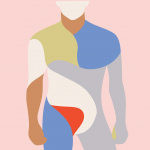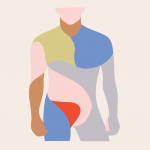How Does Nubeqa Work?
- Nubeqa, which belongs to a class of drugs known as anti-androgens or anti-testosterone, can be used to treat advanced prostate cancer.
- It works by blocking the effects of testosterone to slow the growth and spread of prostate cancer.
- The drug may be used after surgery or when other treatments have not worked or have stopped working.
- Side effects such as fatigue, rashes, or a rise in blood pressure are possible and it’s important to consider these when discussing if Nubeqa is the right option.
The good news rostate cancer can be cured when it's detected and treated early," Dr. Neal Shore, FACS, the Medical Director for the Carolina Urologic Research Center in Myrtle Beach, SC., told SurvivorNet.
Read MoreWho is at Risk for Prostate Cancer?
"The biggest risk factor for prostate cancer is something we have no control over getting older," Dr. Shore says. "The usual age for men to be diagnosed with prostate cancer is between 65 and 69 years. If you’re under 50, your risk of being diagnosed with prostate cancer is low, but it's still possible," he adds. Dr. Edwin Posadas, of Cedars-Sinai Medical Center, explains how some men are more at risk for prostate cancer than others.Other risk factors include:
- Race and Ethnicity. The CDC reports that African-American men have the highest rate of prostate cancer, followed by white, Hispanic, American Indian/Alaska Native and Asian/Pacific Islander men. According to the American Cancer Society, African -American men are twice as likely to die from prostate cancer as white men.
- Genetics/Heredity. "Prostate cancer seems to run in families, which suggests that in some cases, there may be an inherited or genetic factor," Dr. Shore says. "For instance, having a father or brother with the disease more than doubles a man's risk of developing it."
- Geography. Prostate cancer is most common in North America, northwestern Europe, Australia, and on Caribbean islands. It's less common in Asia, Africa, Central and South America. Why? Well, that still needs to be determined. The fact that there's more frequent screening for the disease in some developed countries may account for at least a portion of the statistical risk.
- More possibilities. Other contributors include smoking, obesity, diet (some studies suggest that men who eat a high-fat diet, especially if its high in red meat or high-fat dairy products may have a greater chance of developing the disease) and chemical exposure. For example, firefighters who are frequently exposed to combustion byproducts, as well as farmers exposed to agricultural pesticides have higher rates. Further research is needed to confirm these connections.
How Does Nubeqa Work?
Nubeqa is used to treat advanced prostate cancer. It's also prescribed after surgery or when other treatments have not worked or have stopped working. This medication belongs to a class of drugs known as anti-androgens or anti-testosterone. It works by blocking the effects of testosterone to slow the growth and spread of prostate cancer.
What Kinds of Prostate Cancer Does Nubeqa Treat?
Nubeqa is the latest oral medication approved by the FDA to be used in the treatment of these two kinds of advanced prostate cancer:
- Metastatic Hormone-Sensitive Prostate Cancer (mHSPC). Up to one third of patients with prostate cancer eventually develop mHSPC. This happens when the cancer spreads beyond the prostate to other areas of the body. The condition can be treated with hormone therapy which means that male sex hormones, including testosterone, can be blocked or stopped to slow the cancer growth. However, down the road, many patients end up developing resistance to the hormone treatment resulting in a recurrence of cancer. "Anywhere from 40 percent of patients go into a resistant state," Dr. Shore says.
- Non-metastatic Castration Resistant Prostate Cancer (nmCRPC). This is a kind of advanced prostate cancer that no longer responds to hormone treatment. Although it shows signs of growth, such as a rising PSA level, cancer cells are only found in the prostate. The cancer has not spread.
Dr. David Wise, a medical oncologist at NYU Perlmutter Cancer Center, explains how treatment for advanced prostate cancer has improved in recent years.
How is Nubeqa Taken?
Be sure to read the Patient Information booklet from you pharmacist before you start taking Nubeqa and each time you get a refill.
This medication is taken by mouth and with food, as directed by your doctor. It's usually taken twice a day. Swallow the tablet whole. Do no chew, crush or split the pills.
Follow the prescription directions. Do not increase or decrease your dose. In order to get the most benefit from the medication, take it regularly.
What are the Side Effects?
"Across the board, the bane of chemotherapy is fatigue," Dr. Shore says. "Nubeqa, which is otherwise well-tolerated, is no exception." As Dr. Shore points out: "Fatigue is often compounded by the patient's advanced age."
Other common side effects include:
- Arm, leg, hand or foot pain
- Rash
- A decrease in white blood cell count (neutropenia)
- Changes in liver function
- A rise in blood pressure. Check your blood pressure regularly and let your healthcare provider know if the results are high.
- A lowered ability to fight infections. The medication may also make infections you already have, worse. Tell your doctor right away if you have any sign of infection, such as a sore throat that lingers, fever, chills or a cough.
It’s important to get in touch with your doctor right away if you experience any of the following side effects:
- Severe ongoing nausea or diarrhea
- Painful or difficult urination
- Blood in your urine
- Severe headache, blurred vision, pounding in your neck or ears
- Slowed heart rate, weak pulse, fainting, slow breathing
- Signs of blood clot in the lung which can be experienced by chest pain, sudden cough, wheezing, rapid breathing
- Signs of a lung infection which can be experienced with fever, chills, cough with mucus, chest pain, shortness of breath
Get emergency help right away if you experience signs of an allergic reaction to Nubeqa, which includes:
- Hives
- Difficulty breathing
- Swelling of your face, lips, tongue or throat
What Should You Tell Your Doctor?
In order for healthcare providers to decide on the best treatment for you, it helps them to have a complete picture of your present condition. Be sure to share the following information:
- If you are allergic to Nubeqa
- Whether you have any other allergies to foods or other medications
- All about your medical history, particularly if you've had kidney or liver issues
- Before you're having surgery, including dental procedures, let your doctor or dentist know you are taking Nubeqa
- Any other medications, nonprescription drugs and herbal supplements you are taking
Questions to Ask Your Doctor
- Will this medication affect my fertility?
- Does it have an effect on erectile dysfunction?
- Will this drug interact with other medications I'm taking?
- How might the treatment affect my daily activities?
- How long does the treatment last?
- Who can help me navigate the costs of this treatment?
- Are there any lifestyle changes I can make to improve my prognosis?
Learn more about SurvivorNet's rigorous medical review process.





